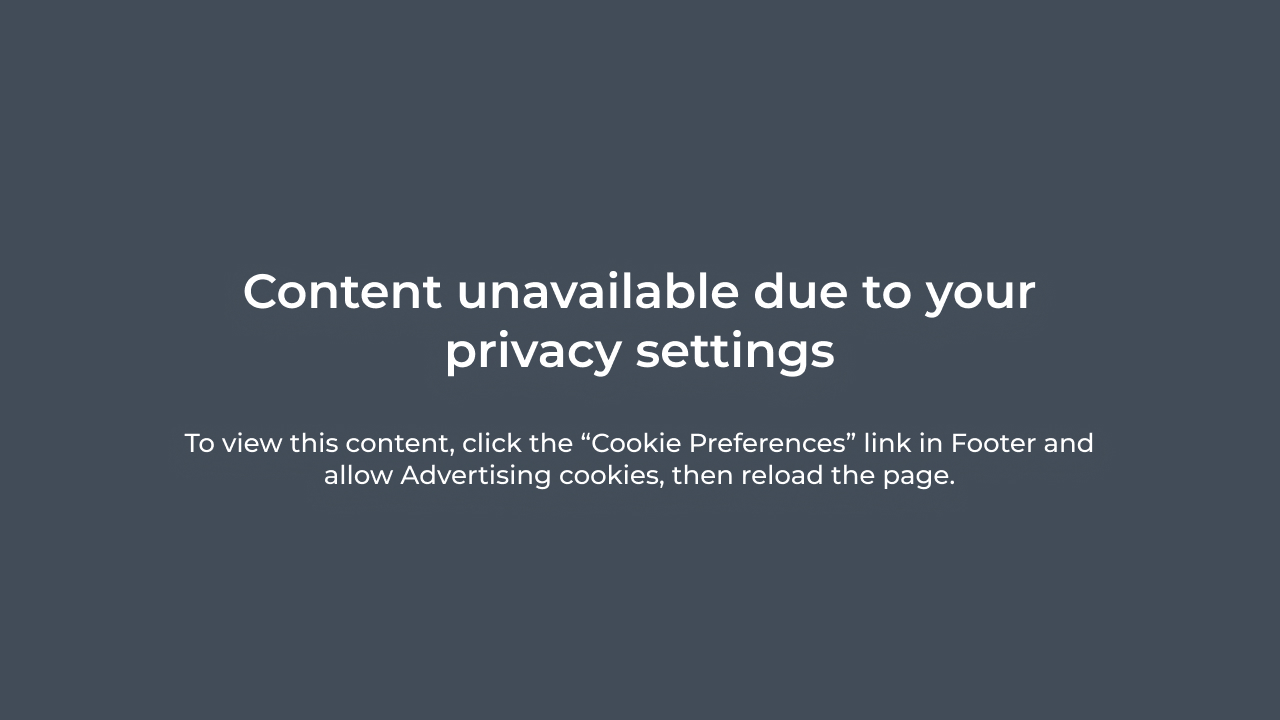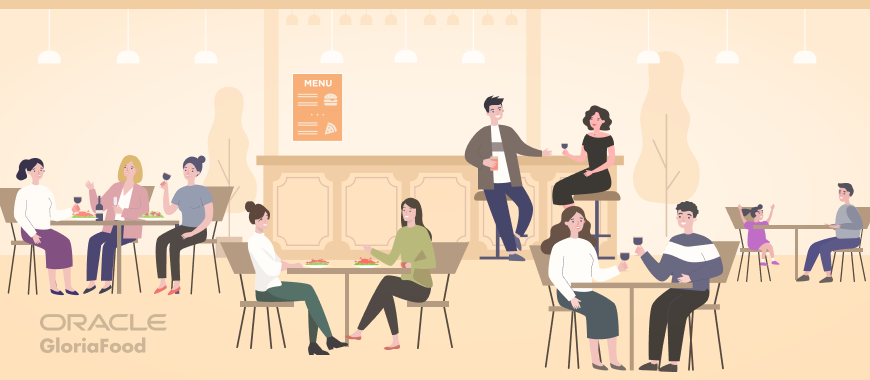- 1.Detail-oriented
- 2.Informed
- 3.Indifferent
- 4.Rude
- 5.Indecisive
- 6.Busy
- 7.Tech-savvy
If you are in the restaurant business, you’ve probably encountered a variety of customer typologies in your day-to-day job. Your success as a restaurateur is partly dictated by your ability to adapt to many types of restaurant customers and ensure they have an amazing time at your restaurant.
Let’s take a look at seven main restaurant customer types, what they want, and how you can deliver.
Identifying the Customer Needs and Expectations in a Restaurant
Flawless restaurant customer service only comes with a deep understanding of who are the customers of a restaurant and what they want.
While you’ll have your target audience to cater to, these people are also divided into multiple types of restaurant customers.
Learning more about each of them gives you the chance to improve your customer service by adapting to their needs and requests.
While a detail-oriented customer will pay attention to the smallest details, a busy one will just want to eat and pay as quickly as possible, and so on.
To ensure a good experience and encourage a return visit, you need to have the knowledge and tools needed to cater to a variety of customers.
This knowledge will help you create a complete restaurant customer service training manual that includes successfully dealing with a variety of customers.
7 Types of Restaurant Customers & How to Serve Them
1. Detail-oriented
These customers are highly vigilant and attentive to details that others might not notice, such as a typo in the menu or a small stain on their server’s apron.
More often than not, these types of customers will want everything to be perfect, from the way they are greeted in the restaurant to how the plating is set up on the table.
How to keep a detail-oriented customer happy:
- Improve customer service skills such as guest greeting, order-taking, flexibility, and problem-solving.
- Pay close attention to how your servers present themselves and always have spare uniforms in case of accidents.
- Teach servers to solve small problems and know when to escalate to the manager for a more serious issue.
- Focus on menu optimization, writing, and proofreading to ensure your menu looks professional.
- Apologize for any mishaps with a discount or freebie.
2. Informed
We are looking here at customers who research a restaurant in-depth before they visit it, from their website to online reviews. With high standards and expectations, they might turn into critics if their needs are not met.
These types of restaurant customers are usually also informed on things like food and beverage pairings or the right way to serve exotic dishes.
How to keep an informed customer happy:
- Create a sales and SEO-optimized website that will help you rank high in Google, so customers can find you online. Make sure your website contains relevant information at a glance: menu, order button, table reservation button, opening hours, and address.

- Create and optimize your Google Business Profile and encourage customers to review your restaurant.
- Train your servers in food and beverage pairings so they are able to make suggestions and have conversations with knowledgeable customers.
- Provide allergen and nutritional information for every menu item to avoid incidents and complaints.
3. Indifferent
Indifferent customers can provide a challenge for your servers, but they also give you the opportunity to win them over with your food and service.
Whether they’ve walked in because they wanted to grab a quick bite or they’re waiting for someone, you can spot them by the fact that they are distracted when you approach the table and take a long time to interact with the server.
How to keep an indifferent customer happy:
- Don’t put a lot of pressure on them to decide quickly and be patient if they seem distracted or they’re talking to someone else.
- Present your daily specials and most popular menu items to put your best foot forward if they’ve never tried your food before.
- Let them know if you have any promotions active such as a discount on the check if you order anything from the pasta menu or a free drink with any pizza.

4. Rude
One of the worst types of restaurant customers, these people might raise their voices, make a scene, and even verbally abuse the servers.
Whether their complaint is justified or not, there is no excuse for rude customers to behave that way. That is why you need a clear restaurant policy for customers who are rude or abusive.
How to keep a rude customer happy:
- Listen to their complaint and don’t talk over them.
- Apologize for the situation and offer to fix it by replacing their meal, not charging them, offering a freebie, or whatever else the situation requires.
- Be calm and patient to try to diffuse the situation and show the customer that they’re the only ones making a scene.
- Train your servers to deal with rude customers and be aware of the escalation policy in case things get out of hand.
5. Indecisive
Out of the many types of customers in the food industry, indecisive ones can really test a server’s patience. However, instead of rolling your eyes when they ask a question, use this as an opportunity to increase the average check value.
Not everybody researches or decides on what they want to eat before visiting a restaurant, so you need to be patient with people who want to know more before they make a decision.
How to keep an indecisive customer happy:
- Make sure all your servers are familiar with the menu inside and out so they can quickly answer any questions and give pertinent answers that will help indecisive customers choose faster.
- Take advantage of the questions customers ask to upsell certain menu items and increase your profit.
- Be patient and have a smile on your face even if you may find the entire process exhausting, otherwise, customers will feel pressured by your attitude and might not return to the restaurant.
6. Busy
When you consider the importance of good service in a restaurant, a vital factor that comes to mind is the speed of service. Customers who are in a hurry will appreciate you moving fast so they can get in and out in under an hour.
If you want to appeal to these types of restaurant customers, you need to rely on effective tools and technology that can do more than a human could.
How to keep a busy customer happy:
- Enable table reservations and food pre-orders so they can book a table and order and pay for their meal in advance. That way, you can have the food ready when they arrive, and once they’re done, they can just leave knowing they already paid the check.
- Implement a QR code menu that allows busy customers to browse your menu, order, and pay the moment they sit down, without having to wait for a server to bring the menu, write down their order, and so on.

- Give customers the option to order your food online for pickup and delivery so they can enjoy it at the office or home when they don’t have time to visit the restaurant.
7. Tech-savvy
Businesses are becoming more and more reliant on technology, and restaurants make no exception. To keep up with the times and with your tech-savvy customers, you need to embrace technology.
Restaurant tech can help you increase efficiency, serve more customers daily, and automate a lot of the tasks you used to do manually.
How to keep a tech-savvy customer happy:
- Implement smart technology such as online ordering, table reservations, QR code ordering, and so on.
- Offer free WiFi so customers are able to browse your digital menu and access social media while at your restaurant.
- Research the latest social media food trends and participate in as many as possible to attract customers who spend a lot of time on social media.
- Invest time and effort in food plating so that your meals are Instagrammable and they encourage customers to post about your restaurant online.
Final Thoughts
Have you ever wondered, “What is the best customer in my restaurant”? While some customers on this list are definitely better than others, the reality is that you will come across all of these types of restaurant customers as a restaurateur.
As such, you need to know more about each of them and what makes them tick, so you can provide flawless service and increase profitability.
